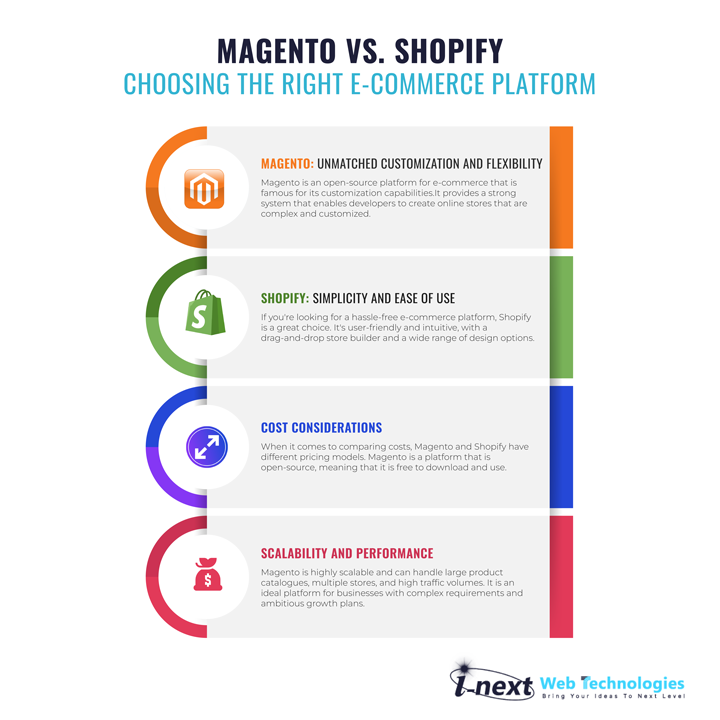
If you’re planning to start an online store, choosing the right e-commerce platform is essential. Among the many available options, Magento and Shopify are two of the most popular. Our article aims to compare these two platforms, emphasizing their respective strengths. By reading our comparison, you’ll be better equipped to make an informed decision that suits your e-commerce needs.
Magento: Unmatched Customization and Flexibility
Magento is an open-source platform for e-commerce that is famous for its customization capabilities. It provides a strong system that enables developers to create online stores that are complex and customized. With Magento, you can control the design, scalability, and functionality of your store completely. It is appropriate for businesses with different needs as it supports different languages, stores, and currencies. However, this customization comes at the cost of needing technical expertise to maintain and manage it, and it has a steep learning curve.
Shopify: Simplicity and Ease of Use
If you’re looking for a hassle-free e-commerce platform, Shopify is a great choice. It’s user-friendly and intuitive, with a drag-and-drop store builder and a wide range of design options. Shopify takes care of all technical aspects, including hosting, security, and updates, so you can focus on selling your products. However, if you have very complex or unique customization needs, Shopify may not be the best fit.
Cost Considerations
When it comes to comparing costs, Magento and Shopify have different pricing models. Magento is a platform that is open-source, meaning that it is free to download and use. However, it is important to keep in mind that you may need to budget for additional expenses such as hosting, development, security, and maintenance. On the other hand, Shopify offers a range of pricing plans that include hosting and maintenance, starting from basic packages to advanced enterprise solutions. It is crucial to evaluate your business needs and budget in order to decide which platform is the best fit for your financial considerations.
Scalability and Performance
Magento is highly scalable and can handle large product catalogues, multiple stores, and high traffic volumes. It is an ideal platform for businesses with complex requirements and ambitious growth plans. Shopify, on the other hand, is also capable of handling significant traffic but may have limitations when it comes to extremely large inventories or advanced functionalities. Nonetheless, Shopify’s infrastructure guarantees reliable performance, fast loading times, and robust security measures.
When deciding between Magento and Shopify, it’s important to consider your business’s specific needs, technical abilities, budget, and growth goals. If you have the resources and technical expertise and require extensive customization, Magento is the better choice due to its unmatched flexibility. However, if simplicity and quick setup are priorities, Shopify provides an excellent user experience. It’s essential to evaluate factors such as scalability, cost, level of control, and customization needs to make the right decision. Numerous businesses trust both platforms as powerful e-commerce solutions worldwide, and selecting the one that best suits your needs is crucial for your online success.
